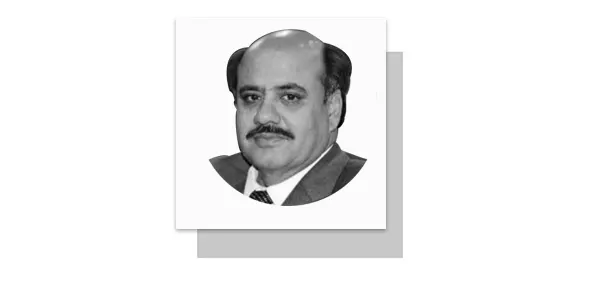The rapid transformation in global geopolitics, the vertical proliferation of nuclear weapons, nuclear-armed states signaling to use nuclear weapons to intimidate adversaries, and the escalation of tension between Iran and Israel have alarmed about the overt nuclearisation of the Middle East. Admittedly, Israel developed nukes potential for decades, but its ruling elite straightforwardly indicated the use of nuclear weapons during the current asymmetrical Israel-Palestinian-Hamas warfare, which has escalated towards Lebanon and dragged into Iran, and also alarming about direct military intervention of the United States.
PM Netanyahu warned Iran of a nuclear threat during his speech at the United Nations General Assembly on September 22, 2023. He said,”Above all—above all—Iran must face a credible nuclear threat. As long as I’m prime minister of Israel, I will do everything in my power to prevent Iran from getting nuclear weapons.” On November 5, 2023, Heritage Minister Amichai Eliyahu threatened to drop “some kind of atomic bomb” on the Gaza Strip “to kill everyone.” On January 24, 2024, Eliyahu renewed his call for striking the Gaza Strip with a “nuclear bomb.”They deliberately advertise Israeli nuclear weapons potential with a well-defined purpose to manifest that Israel possesses nuclear weapons capability and could use it in a war for its defense.
Israeli ruling elite’s rhetoric about the use of nuclear weapons in the current Middle Eastern crisis needs critical examination. It is because, despite its atmospheric nuclear test of the South African coast in 1979, Tel Aviv has maintained a firm, opaque nuclear policy.
The shift in the policy raises two interlinked questions: why there was a shift in Israel’s nuclear policy? Secondly, what are the ramifications of the change? It seems the shift in Israel’s nuclear policy is due to unpredictable dynamic intrinsic forces of asymmetrical warfare.Moreover, the Israeli ruling elite quickly concluded that it could not win the asymmetrical warfare.
Therefore, it needed a new theatre and the gigantic U.S.-led Western allies’ support for face-saving and survival in the hostile neighborhood.
The primary aim of the Israeli ruling elite’s reference to the use of nuclear weaponswas to compel and bully Iran and also terrorize the entire region through the threat of the use of nuclear weapons. The repeated reference to the use of nuclear weapons in the ongoing warfare reconfirms Tel Aviv Samson Option, i.e., “Israel’s D-Day strategy to annihilate the whole region by employing nuclear weapons in case Israel as a state is on the verge of collapse.”The Samson option would be employed in case conventional deterrence fails. Precisely, Israel has nuclear capability and is willing to use it if required.
The ongoing Gaza war and Israel’s massive air raids in Lebanon have increased tension between Iran and Israel. Besides, the assassination of Ismail Haniyehin Tehran and Nasrullah in Beirut compelled Iran to retaliate against Israel. On October 1, Iran fired a barrage of more than 180 missiles at Israeli military installations. It marked a major escalation in the Israel-Iran conflict.It has also led to widespread speculation about when and where Israel will respond. The Israeli hardliners are pressurizing Prime Minister Netanyahu to attack Iranian nuclear facilities.
During the lastweek, much of the speculation about Iran’s nuclear weapons program has centered on the question of whether Iran had clandestinely conducted nuclear tests or not.
There is no authentic information available about the current status of Iran’s nuclear program or conducting a secret nuclear test. The United States’ exit from the Joint Comprehensive Plan of Action (JCPOA) in 2018 has provided Iran an opportunity to increase its uranium enrichment stockpile and also improve its purity. International Atomic Energy reported in August 2024 that Iran had increased the purity of the Uranium enrichment up to 60 percent. Since the demise of JCPOA, Iran has advanced uranium enrichment and advanced its ballistic missiles program. Thus, Iran has systematically acquired nuclear fissile material and modernized nuclear-capable delivery vehicles.
The Iranian ruling elite has announced that Israel’s attack against Iran will be counterproductive. The analysts have a consensus that Israel’s or the United States’ attack on Iranian nuclear facilities will not completely eliminate Iran’s nuclear capability. It only drives Iranian transit from a latent to an overt nuclear-armed state. However, on the current speculation of a clandestine nuclear test, Tehranmum’s the word.So far, Iran has neither exited the Nuclear Non-Proliferation Treaty nor officially announced the shift in its nuclear policy. Hence, Iran has not conducted nuclear tests.
Moreover, one needs to understand why a state conducts nuclear tests. The simple answer is to check the operability of the nuclear device and demonstrate that it possesses nuclear weapons potential. Such a display is important for the nuclear deterrence strategy. Therefore, speculation about the nuclear test contributes constructively to Iran’s deterrence strategy.
Realistically, Tel Aviv’s nuke threat neither timid Hamas and Hezbollah nor deterred Iran from backing the legitimate cause of Palestinians’ right to self-determination and openly condemning Israel’s state terrorism. Conversely, the Israeli ruling elite’s nuclear signaling and exchange of strikes between Tehran and Tel Aviv have increased the chance of Iran’s exit from NPT and conducting nuclear tests to join the nuclear-armed states’ club. The shift in the Iranian nuclear policy certainly kick-starts the nuclear arms race in the Middle East.
—The writer is Prof at the School of Politics and International Relations, Quaid-i-Azam University.
(jaspal_99@hotmail.com)










